
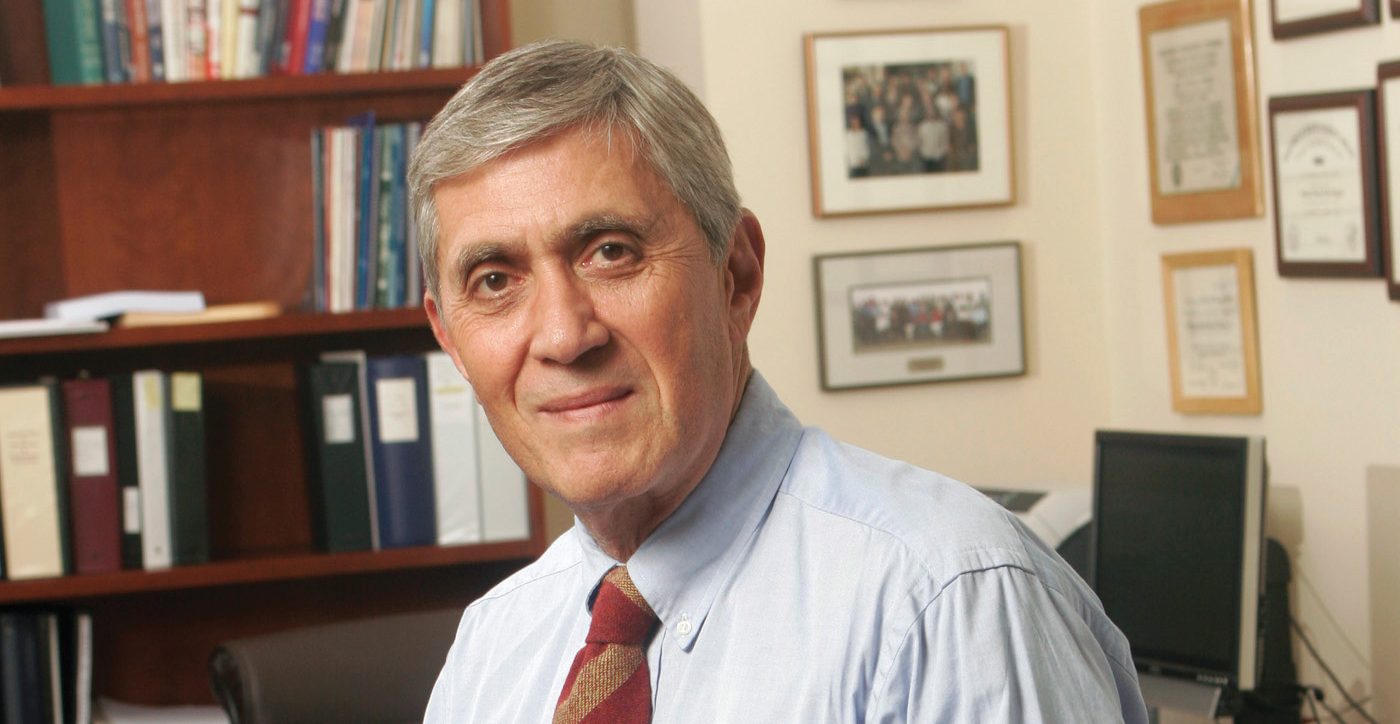
In two fundamental ways: first, my own humble origins gave me a deep appreciation for the value and potential of every human life, irrespective of place and circumstances of origin. Second, as the child of Holocaust survivors I was inevitably exposed to “secondhand smoke.” I will leave it to those reading this to figure out the meaning of that double entendre. This exposure was undoubtedly a critical factor motivating me from childhood to succeed, by which I mean to lead a purposeful life.
In that brief summer of 1962, I was too young, and my exposure was too limited, for me to get a real sense of all that Einstein represented. I was simply grateful to be given an opportunity to learn something about laboratory research from people who were generous with their time and patient with my limited understanding of science. When I came to Einstein as dean in 2006, it was apparent that the qualities I had glimpsed 44 years before—a culture of collegiality and thoughtful mentorship of students at all levels—were alive and well.
Becoming a physician, it seemed to me, was one of the best ways of leading a purposeful life. At the same time, as I gained more exposure to laboratory research in college, medical school and during a fellowship at the National Institutes of Health [NIH], I realized that pursuing a research career could afford me the opportunity to discover new knowledge and contribute not only to caring for patients but also to improving our ability to care for them. Becoming a physician/scientist gave me the best of both worlds.
The most significant would have to be facilitating Einstein’s transition in 2015 to become part of Montefiore Medicine.
In our research mission, it was recruiting outstanding new faculty and retaining many key faculty who were being heavily recruited by other top academic centers. This directly led to the expansion in number of our NIH-funded centers, and reaching unprecedented levels of overall external research funding.

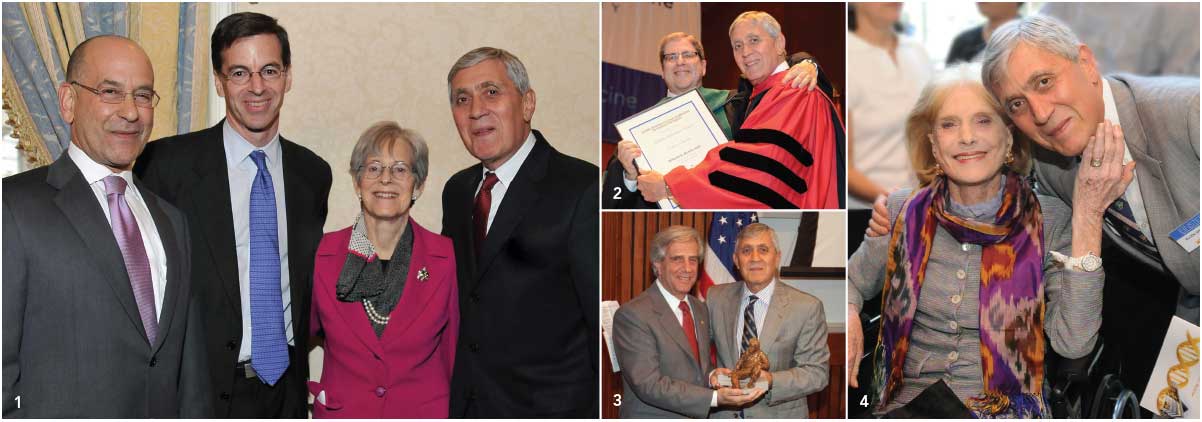 1. Dr. Spiegel with, from left, Steven M. Safyer, M.D., president and CEO, Montefiore; David A. Tanner, chair emeritus, Montefiore’s Board of Trustees; Ruth Gottesman, Ed.D.,chair emeritus, Einstein’s Board of Trustees. 2. Dr. Spiegel with Edward R. Burns, executive dean. 3. Dr. Spiegel with Uruguay’s president, abaré Vázquez, M.D. 4. Dr. Spiegel with Muriel Block.
1. Dr. Spiegel with, from left, Steven M. Safyer, M.D., president and CEO, Montefiore; David A. Tanner, chair emeritus, Montefiore’s Board of Trustees; Ruth Gottesman, Ed.D.,chair emeritus, Einstein’s Board of Trustees. 2. Dr. Spiegel with Edward R. Burns, executive dean. 3. Dr. Spiegel with Uruguay’s president, abaré Vázquez, M.D. 4. Dr. Spiegel with Muriel Block.
In our educational mission, it was appointing new deans for student affairs and for education, and being able, with extraordinary support from former Board chair Ruth Gottesman, to create the new Clinical Skills and Education Centers. All of this contributed to enhancing our medical education program, achieving full accreditation from the Liaison Committee on Medical Education and positioning us to achieve independent degree-granting status.
Our development efforts were highly successful, particularly in the period between 2007 and 2013, which saw the remarkable bequest of more than $160 million from the late Muriel Block.
Contributing to our development success was a dramatic improvement in all parts of our communications efforts. Even the physical appearance of our campus was transformed to a more beautiful state internally and externally.
None of these positive changes would have been possible without a talented and dedicated leadership team that included Ed Burns, Jed Shivers, Gordon Earle, Sal Ciampo and Yvonne Ramirez.
To me, being a successful dean means finding personal fulfillment in seeing the success of others: research faculty, graduate students and postdoctoral fellows, clinician-educators, medical students. In that respect, the past 12 years have been highly fulfilling for me.
Being a medical school dean is a tough job! But it can also be remarkably rewarding if you’re able to leave the institution in a better state than when you began.
It would be unfair to Einstein’s many outstanding researchers to single out one or even several accomplishments. Instead, I would just point out that Einstein faculty have made major contributions over the past 10 years in a wide range of fields, including the biology of aging, immunotherapy, cancer, brain science, diabetes and other metabolic disorders and infectious diseases.
First becoming a concert pianist, and then an orchestra conductor. But that’s pure fantasy—extremely unrealistic, given that there’s no evidence I possess a shred of relevant talent in these demanding fields.
That interest stems from my enjoyment in seeing my son play soccer through high school. But it’s strictly vicarious, since aside from an inept stint on the Columbia freshman soccer team, I never really played the game myself. In contrast, spurred on by my daughter’s years of competitive swimming, I took up lap swimming for some years as my daily exercise routine.
As for favorite soccer teams, I don’t really have one, but I do like certain players—for example, Alexis Sanchez (formerly of Arsenal, now of Manchester United).
In an ideal world, as opposed to the one we actually live in, the U.S. health system will evolve along lines (value-based, not volume-based) pioneered by Montefiore. As part of Montefiore Medicine and within a more equitable and cost-effective U.S. healthcare ecosystem, Einstein will thrive. Its outstanding researchers (faculty, grad students and postdocs) will make high-impact discoveries that lead to better disease prevention and treatment, and its M.D. graduates will be ever more capable of caring for their patients. And on a more parochial note, the new train station connecting Einstein with points north and south will completely transform our campus (for the better) in ways hard to imagine right now.
As I stated in June 2017 when I announced my intention to step down after 12 years as dean and a preceding 16 years in major administrative positions at the NIH, I look forward to remaining active, but without significant administrative responsibility. Teaching and mentoring, particularly of aspiring physician/scientists, is something I would relish.
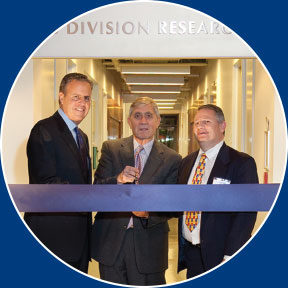
$1.8 billion in funding from the NIH (fiscal years 2007–17)
$500 million raised in philanthropy, leading to 17 new endowed chairs and four new faculty scholars
Faculty Senate approved guidelines for strengthening the tenure process while enhancing Einstein’s sustainability
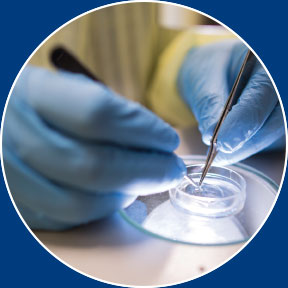
Sixteen new basic science and clinical department chairs appointed
New directors appointed for Diabetes Center, Intellectual and Developmental Disabilities Research Center, Magnetic Resonance Research Center and Stem Cell Research Institute
Eight NIH-funded centers, including three new centers: Aging Research, Clinical and Translational Research and Diabetes Translational Research
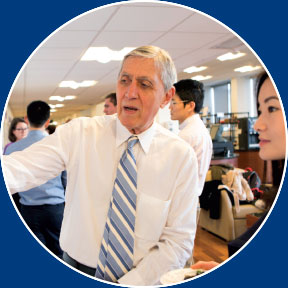
New leadership in medical education and student affairs
Establishment of milestone events for medical and graduate students, including the White Coat Ceremony
Increased scholarships to reduce indebtedness
Process for independent degree-granting authority initiated
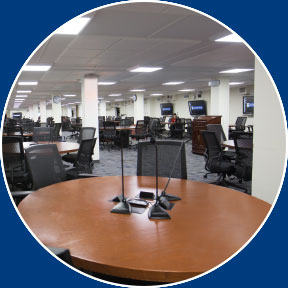
200,000 square feet of new laboratory space built and filled in the Price Center/Block Pavilion and Van Etten
Additional 325,000 square feet of renovated laboratory space
More than 40,000 square feet of active-learning educational space opened
in Forchheimer and Van Etten
Einstein’s “Main Street” in Forchheimer, with Einstein Café, developed
Campus beautification

Dean’s tenure begins

First Einstein Strategic Research Plan is published

Michael F. Price Center for Genetic and Translational Medicine/Harold and Muriel Block Research Pavilion opens

New Einstein-Montefiore affiliation agreement is signed, establishing an era of increased integration

Ruth L. Gottesman Clinical Skills Center opens

Einstein receives bequest of more than $160 million from Harold and Muriel Block, the largest gift in Einstein history

The Education Center, designed for active and team-based learning, opens

Liaison Committee on Medical Education awards Einstein full, eight-year accreditation

Einstein becomes part of Montefiore Medicine

New comprehensive Strategic Plan published, focusing on Einstein-Montefiore integration in research and education

Einstein brings in a record-high $174 million in National Institutes of Health funding

Einstein develops its first Diversity and Inclusion Plan